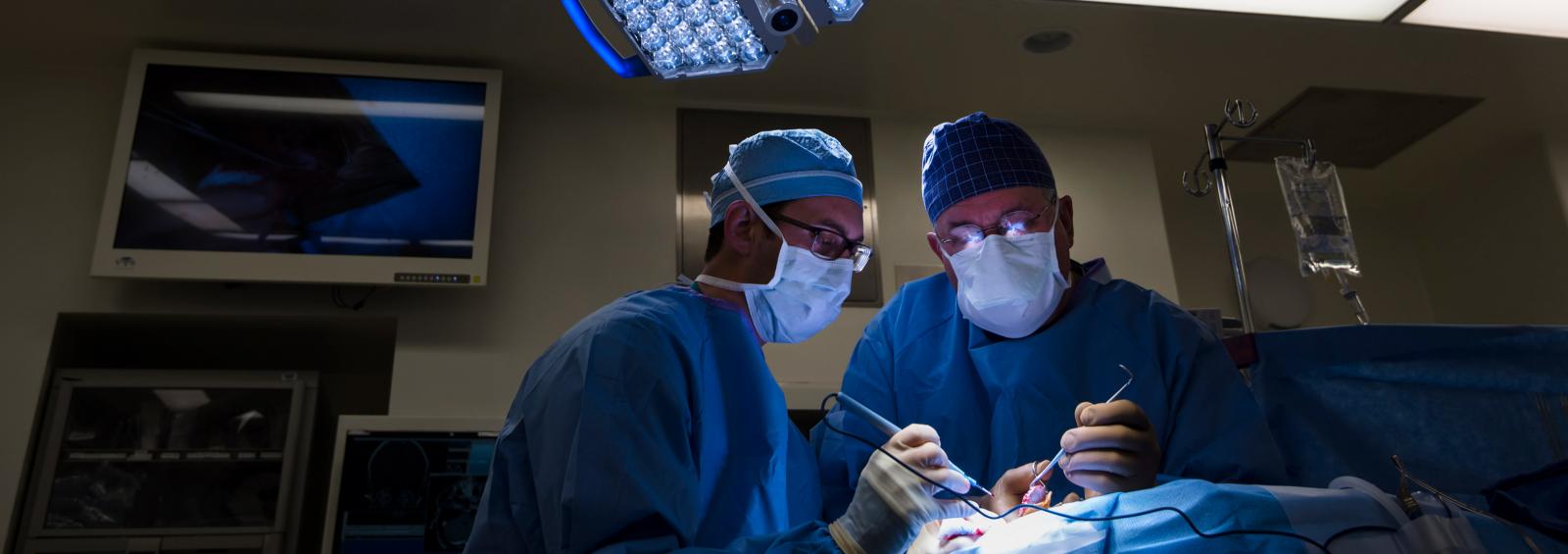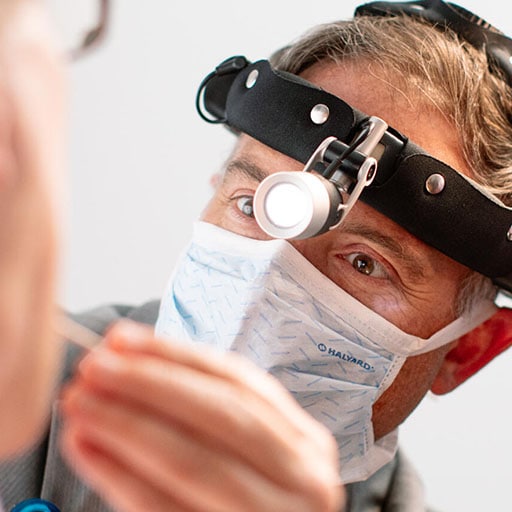Comprehensive Overview at Otolaryngology and Its Role in Treating Sinus Disorders
Comprehensive Overview at Otolaryngology and Its Role in Treating Sinus Disorders
Blog Article
Checking out the Field of Otolaryngology: What to Expect When You Speak With an ENT
Otolaryngology, frequently referred to as ENT, encompasses the medical diagnosis and therapy of nose, ear, and throat disorders. For those experiencing related concerns, getting in touch with an ENT expert can offer clearness and alleviation. Recognizing what to anticipate throughout such consultations is necessary for effective interaction and treatment. This summary will lay out crucial aspects of the ENT experience, consisting of common factors for check outs and the procedures involved in medical diagnosis and treatment.

Recognizing Otolaryngology: An Overview
Otolaryngology, often described as ENT (Nose, ear, and throat) medication, is a customized branch of medicine that concentrates on the medical diagnosis and treatment of conditions influencing these essential locations of the body. This area encompasses a vast array of disorders, including those associated to hearing, equilibrium, respiratory function, and speech. Otolaryngologists are trained to handle both clinical and surgical treatments, using innovative strategies and innovations. Their proficiency expands past conventional disorders, attending to concerns such as allergies, sinus infections, and hearing loss. Furthermore, they play a crucial function in the administration of head and neck cancers cells, providing extensive treatment tailored to private person demands. On the whole, otolaryngology stays necessary for keeping health and wellness and lifestyle in damaged people.
Typical Reasons to See an ENT Specialist
Several people seek the knowledge of an ENT expert for a variety of factors, showing the diverse nature of conditions that affect the ear, throat, and nose. Common concerns consist of chronic sinusitis, which usually causes relentless nasal congestion and facial discomfort. Allergies and their linked signs, such as itching and sneezing, also motivate brows through to these professionals (Otolaryngologist). Hearing loss, whether sudden or steady, is one more significant factor for examination. In enhancement, individuals might look for analysis for throat conditions, including consistent hoarseness or ingesting problems. Rest apnea, characterized by disturbed breathing during rest, is frequently attended to by ENT professionals also. Each of these problems highlights the importance of specialized care in handling intricate ENT-related health problems
Planning for Your ENT Appointment
When getting ready for an ENT consultation, it is vital to collect pertinent information and think about any kind of specific problems. Individuals need to compile a comprehensive clinical background, consisting of previous ear, nose, or throat concerns, surgeries, and present medicines. Recording signs and symptoms-- such as regularity, period, and extent-- can provide important insights for the ENT specialist. Furthermore, individuals need to prepare a checklist of inquiries they desire to ask, making certain that all concerns are addressed during the visit. Bringing along any appropriate medical records or examination results can further assist the ENT in recognizing the person's problem. Ultimately, people need to validate their visit details, including day, place, and time, to minimize any type of last-minute confusion. Proper prep work can boost the efficiency of the assessment and cause better results.
What to Anticipate During the Consultation
As the examination starts, the client can anticipate to engage in a thorough conversation with the ENT expert concerning their signs and symptoms and medical history. The professional will ask about the duration, regularity, and severity of symptoms such as hearing loss, nasal blockage, or sore throat. In addition, the patient's previous clinical problems, drugs, and any appropriate family background will be examined, assisting the expert in creating a complete understanding of the individual's health. The ENT may additionally inquire about way of life factors, such as exposure to irritants or irritants. This open discussion establishes a structure for the appointment, guaranteeing that the person's issues are attended to and establishing the phase for any type of essential assessments or suggestions for therapy.
Diagnostic Tests and Treatments in Otolaryngology
A series of analysis tests and treatments are vital in otolaryngology to precisely examine and detect conditions affecting the ear, throat, and nose. Typical examinations consist of audiometry, which gauges hearing function, and tympanometry, evaluating center ear stress. Nasal endoscopy allows visualization of the nasal passages and sinuses, while laryngoscopy analyzes the throat and vocal cords. Imaging techniques, such as CT scans and MRIs, supply thorough sights of head and neck frameworks. Allergic reaction testing may also be carried out to determine triggers for sinus or breathing problems. These diagnostic devices make it possible for ENT specialists to develop a comprehensive understanding of individuals' problems, ensuring customized and reliable monitoring strategies. Appropriate diagnosis is important for successful therapy results in otolaryngology.
Treatment Options Supplied by ENT Specialists
ENT experts offer a variety of therapy choices tailored to resolve certain conditions influencing the throat, ear, and nose. These treatments range from traditional approaches, such as medicine and way of living alterations, to even more invasive procedures. Allergic reactions might be managed with antihistamines or immunotherapy, while chronic sinus problems may call for nasal corticosteroids or sinus surgical treatment. For hearing loss, ENT specialists often recommend listening device or surgical treatments like cochlear implants. In situations of throat disorders, alternatives can include hearing aid dispenser speech therapy or operations to remove blockages. Additionally, they may give support for managing sleep apnea, consisting of the use of CPAP tools or surgical treatments. In general, the objective is to improve people' high quality of life via customized treatment and effective therapy strategies.
When to Seek Follow-Up Care With an ENT
Acknowledging when to look for follow-up treatment with an ENT professional is important for handling recurring symptoms or problems related to throat, nose, and ear problems. People should take into consideration setting up a follow-up consultation if signs linger regardless of initial therapy, such as chronic ear pain, nasal congestion, or throat discomfort. Adjustments in hearing, equilibrium concerns, or uncommon nasal discharge might likewise necessitate additional analysis. In addition, if a person experiences adverse effects from recommended medications or has actually undergone a procedure, follow-up care is very important to keep an eye on healing you can look here and attend to any concerns. Timely assessments can guarantee efficient monitoring of conditions, stop prospective complications, and provide satisfaction concerning one's wellness. Looking for follow-up care promotes proactive wellness administration in otolaryngology.
Often Asked Questions

What Qualifications Should I Seek in an ENT Professional?
When seeking an ENT professional, one should try to find board certification, pertinent experience, and strong person evaluations. Additionally, efficient communication skills and a thoughtful technique can significantly enhance the total treatment experience.
Just how Do I Select the Right ENT for My Demands?
Selecting the right ENT professional includes evaluating their certifications, experience, and client testimonials (Hearing). It is crucial to consider their interaction design and approach to treatment, see this ensuring they align with the person's specific health and wellness demands and preferences
Exist Any Dangers Associated With ENT Procedures?
The dangers associated with ENT treatments might include infection, bleeding, anesthesia issues, and potential damage to bordering structures. Clients need to talk about these dangers with their physician to understand private problems and assurance notified choices.
Exactly How Can I Manage Stress And Anxiety Before My ENT Visit?
To take care of anxiety before a visit, people can exercise deep breathing workouts, visualize favorable outcomes, prepare inquiries in advance, and seek assistance from pals or family, fostering a sense of confidence and peace.
What Should I Do if I Experience Side Results From Therapy?
If side results from treatment happen, the person needs to promptly report them to their health care copyright. Changes to therapy or additional interventions may be required to assure safety and security and performance in handling their problem - ENT Doctor. As the assessment begins, the client can expect to engage in a thorough discussion with the ENT specialist concerning their signs and symptoms and medical history. These diagnostic devices make it possible for ENT professionals to create an extensive understanding of clients' problems, making certain tailored and effective management plans. ENT specialists provide a range of therapy choices tailored to resolve details conditions influencing the throat, nose, and ear. When seeking an ENT specialist, one must look for board accreditation, relevant experience, and solid individual reviews. Choosing the ideal ENT specialist involves reviewing their certifications, experience, and person evaluations
Report this page